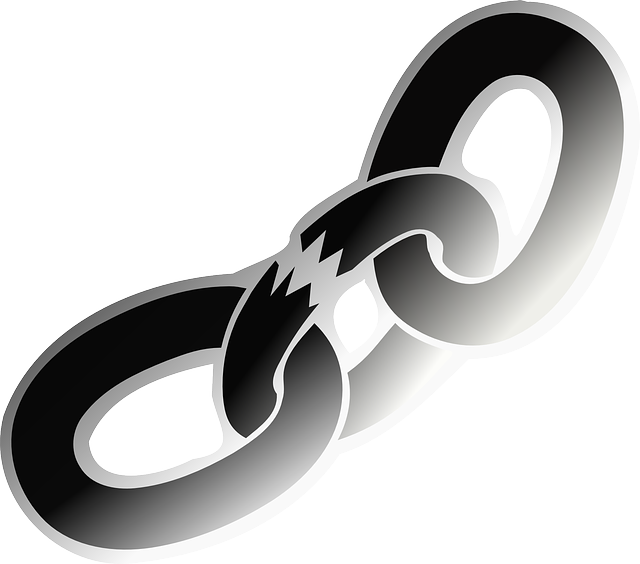Link building is a critical component of SEO, enhancing website visibility and authority through high-quality backlinks from reputable sources. Effective strategies involve guest blogging, infographics, influencer collaborations, and forum participation. Quality over quantity is key to avoiding penalties and improving search rankings. Identifying opportunities on relevant, authoritative sites, understanding target audiences, and analyzing competitors' backlinks are essential steps. Guest blogging, creating shareable content, social media engagement, and collaborating with influencers all contribute to building natural, organic links. Monitoring and analyzing link profiles using tools like Google Search Console and Ahrefs is crucial for maintaining strong SEO performance.
Link building is a vital component of any successful SEO strategy. In today’s digital landscape, high-quality backlinks are key to improving search rankings and driving organic traffic. This comprehensive guide explores essential link building strategies, from understanding the fundamentals to identifying top backlink opportunities and implementing effective tactics like guest blogging and natural link acquisition. By mastering these techniques, you can enhance your site’s authority and outperform competitors through powerful Link Building Strategies.
Understanding Link Building: The Cornerstone of SEO

Link building is a fundamental component of search engine optimization (SEO), playing a pivotal role in boosting a website’s online visibility and credibility. It involves acquiring backlinks from other reputable websites, which serve as votes of confidence in the eyes of search engines like Google. These backlinks signal to search algorithms that a particular site offers valuable content worth sharing with its audience.
Effective link building strategies focus on obtaining high-quality links from authoritative sources within a specific industry or niche. This can be achieved through various methods, including guest blogging, where contributors share their expertise on other blogs; creating and promoting insightful infographics; collaborating with influencers to cross-promote content; and participating in industry forums or online communities to establish yourself as an expert in your field. By employing these strategies, businesses can enhance their search engine rankings, drive targeted traffic, and ultimately, increase their online reach.
Types of Links and Their Impact on Search Rankings

Link building strategies involve cultivating a diverse array of links from various sources, each carrying unique weights in influencing search rankings. These links can be categorized into several types, all playing distinct roles in boosting online visibility. High-quality backlinks from reputable websites carry significant clout, signaling to search engines that a site is an authoritative source worth referencing. Conversely, internal links within a website direct users and search engine crawlers to related content, enhancing the overall user experience and simplifying navigation.
Furthermore, contextual links inserted naturally within relevant content hold substantial SEO value. When a popular blog or influential website references your brand in a relevant context, it introduces your site to a new audience while reinforcing its relevance on specific topics. Conversely, spammy links or those from low-quality websites can hinder search rankings, as search engines penalize sites associated with deceptive or manipulative practices. Therefore, successful link building entails a strategic approach that prioritizes quality over quantity.
Identifying High-Quality Backlink Opportunities

Identifying high-quality backlink opportunities is a crucial component of successful link building strategies. It involves searching for relevant, reputable websites in your niche that offer valuable content or services. These sites should have a strong online presence and be trusted by both users and search engines. Look for opportunities to collaborate, create guest posts, or secure mentions from these influential platforms.
Effective link building starts with understanding your target audience and where they spend their time online. By analyzing competitor backlinks and exploring industry-related blogs and forums, you can uncover potential partners and high-authority websites that align with your SEO goals. This strategic approach ensures that the links acquired are not only relevant but also carry significant weight in boosting your site’s search engine rankings.
Effective Link Building Strategies for Modern SEO

In the modern digital landscape, effective link building remains a cornerstone of successful Search Engine Optimization (SEO). The strategies that drive organic traffic and enhance website authority have evolved, however, with search engines becoming increasingly sophisticated in their algorithms. Quality over quantity is key; obtaining backlinks from reputable, relevant sources significantly boosts SEO performance, whereas numerous low-quality links can do more harm than good.
Diverse Link Building Strategies for contemporary SEO include guest blogging on influential industry sites, creating shareable and engaging content that organically attracts links, and leveraging social media platforms to build relationships with potential link partners. Additionally, reaching out to influencers and industry leaders for mentions or collaborations can significantly bolster a website’s link profile. Remember, the goal is to earn links naturally through valuable interactions and high-quality contributions within your niche community.
Guest Blogging: A Powerful Link Acquisition Method

Guest blogging is a highly effective link-building strategy that involves contributing written content to other websites or blogs within your industry. By offering valuable insights and expertise through well-crafted articles, you can attract a new audience and gain exposure for your brand or business. This method allows you to build high-quality backlinks to your website, which are crucial for improving your search engine optimization (SEO) efforts.
When guest blogging, focus on creating content that resonates with the target audience of the host site. Conduct thorough research to identify reputable and relevant blogs in your niche, and reach out to them with a compelling proposal. Building relationships with influencers and industry leaders through guest posts can open doors to significant link-building opportunities, enhancing your overall Link Building Strategies.
The Art of Building Natural, Organic Links

The art of building natural, organic links is a strategic and patient process that forms the backbone of successful SEO. It involves employing various link building strategies designed to attract high-quality backlinks from authoritative sources. This isn’t about buying or trading links; it’s about earning trust and credibility through valuable content and genuine interactions. Quality over quantity is key here; each link should be a testament to your website’s merit, relevant to its niche and beneficial to the reader.
Effective link building strategies include creating compelling content that naturally draws in links, such as in-depth guides, original research, or interactive tools. Engaging with industry influencers and other websites through guest blogging, collaborations, or social media can also foster organic link opportunities. The goal is to position your site as a valuable resource, encouraging others to naturally link back to it as a source of information. This organic approach not only enhances search engine rankings but also drives targeted traffic, contributing to long-term website growth and success.
Monitoring and Analyzing Your Link Profile for Success

Monitoring and analyzing your link profile is a crucial step in any successful Link Building Strategy. It allows you to track the effectiveness of your efforts, identify areas for improvement, and understand what’s working well. By using tools like Google Search Console and Ahrefs, you can gain insights into the quality and quantity of backlinks pointing to your website. These tools provide data on where your links are coming from, their anchor text distribution, and any potential issues that may impact your SEO performance.
Regularly reviewing your link profile enables you to spot low-quality or toxic links that could harm your search rankings. It also helps in disavowing such links through Google Search Console if necessary. Additionally, analyzing competitors’ link profiles can offer valuable insights into effective Link Building Strategies they’re employing, giving you a competitive edge. This process ensures that your link building efforts align with your SEO goals and keep your website’s profile strong and healthy in the eyes of search engines.
